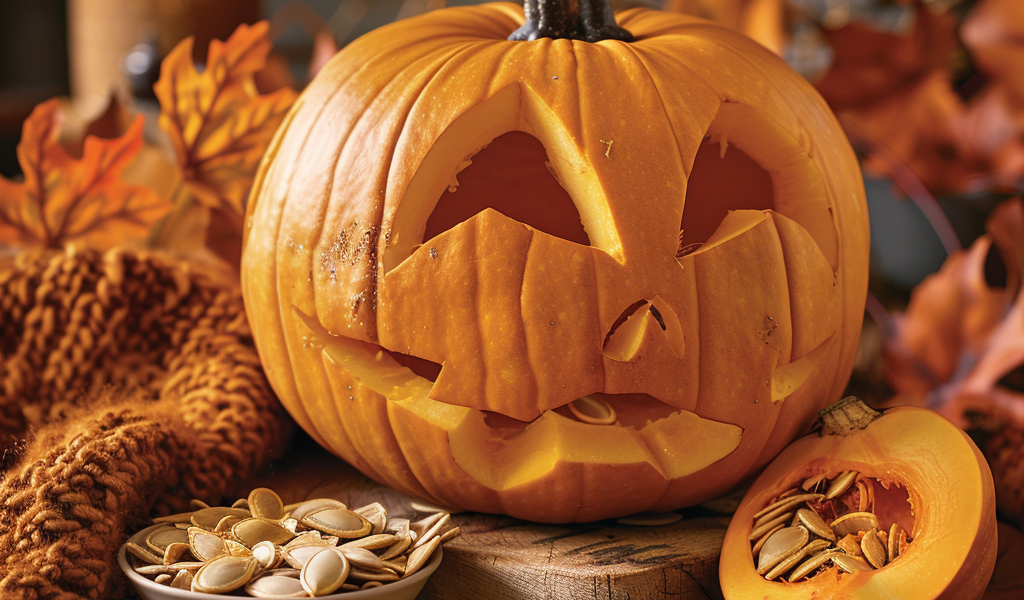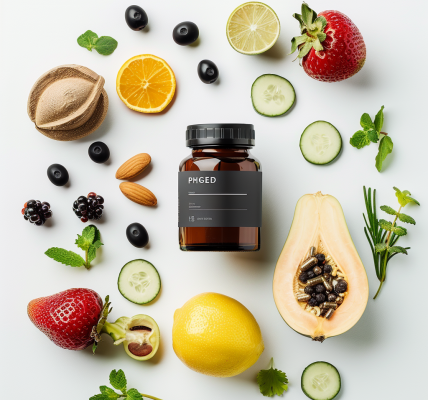As Halloween approaches, the season of spooky festivities and delightful treats arrives, bringing with it an array of snacks and sweets that often fill our homes and hearts. Amidst the excitement of costumes and trick-or-treating, there’s a hidden gem that many overlook: pumpkin seeds. Nutrition experts are highlighting the numerous health benefits of these often-discarded seeds, urging people to incorporate them into their autumn diets.
Halloween is synonymous with fun and creativity, particularly when it comes to carving pumpkins. However, while many enjoy the artistic aspect of pumpkin carving, they often toss aside the seeds, missing out on a nutritional powerhouse. Kyle Crowley, a renowned nutrition expert from Protein Works, emphasizes the importance of not discarding pumpkin seeds, as they can play a crucial role in enhancing overall health.
One of the most significant benefits of pumpkin seeds is their ability to help manage blood pressure, a critical factor in preventing heart attacks, strokes, and kidney failure. Crowley explains that magnesium, a mineral abundant in pumpkin seeds, is vital for maintaining healthy blood pressure levels. Given that high blood pressure is a leading risk factor for serious health conditions, incorporating pumpkin seeds into your diet could be a proactive step towards better cardiovascular health.
In addition to their blood pressure-lowering properties, pumpkin seeds are rich in essential nutrients that can bolster the immune system, especially during the colder months when seasonal illnesses like colds and flu become prevalent. The seeds are packed with omega-3 fatty acids, zinc, and selenium, all of which contribute to a robust immune response. This is particularly beneficial for the elderly and individuals with compromised immune systems.
Moreover, pumpkin seeds are a fantastic source of dietary fiber, which plays a vital role in digestive health. A diet high in fiber can aid in maintaining a healthy gut, promoting regular bowel movements, and reducing the risk of gastrointestinal disorders. This is especially important as we move into the winter months when people are more prone to sedentary lifestyles and less healthy eating habits.
For those looking for ways to incorporate pumpkin seeds into their diets, the options are plentiful. They can be enjoyed roasted and salted as a snack, sprinkled on salads for added crunch, or blended into smoothies for a nutritional boost. Additionally, pumpkin seeds can be used in baking, adding a delightful texture and flavor to breads, muffins, and granola bars.
As Halloween festivities unfold, consider making pumpkin seeds a staple in your diet. Not only do they offer a delicious and nutritious snack option, but they also provide a range of health benefits that can help mitigate the risks associated with heart disease, strokes, and other serious health conditions. This Halloween, while enjoying the treats and festivities, remember to save and savor the seeds for a healthier, happier autumn season.
In conclusion, as we embrace the spirit of Halloween, let’s not forget the nutritional benefits that pumpkin seeds can bring. By incorporating this simple yet powerful food into our diets, we can take a proactive approach to our health, enjoying the season’s treats while also caring for our well-being. So, this Halloween, don’t just carve the pumpkins—enjoy the seeds too!





